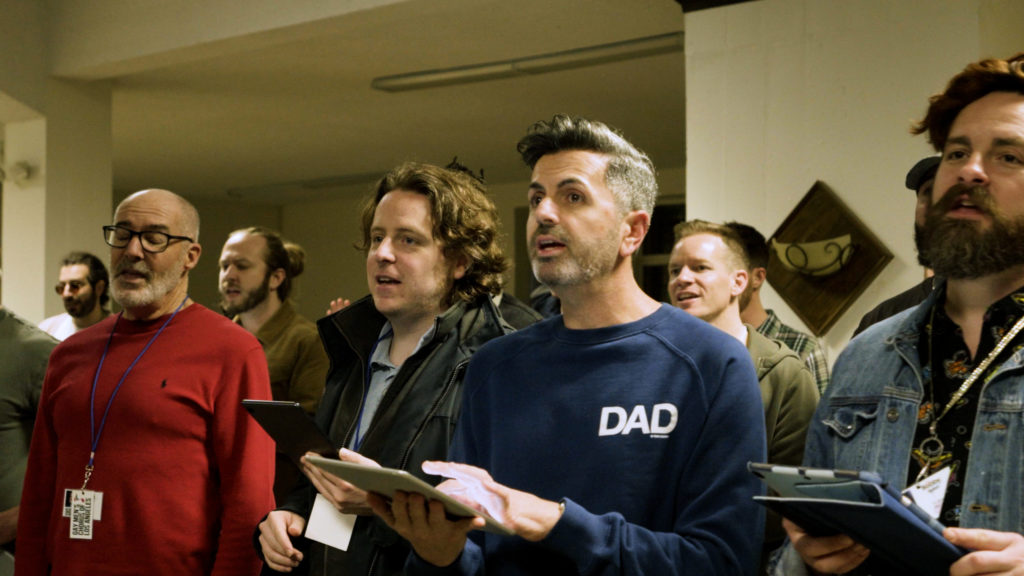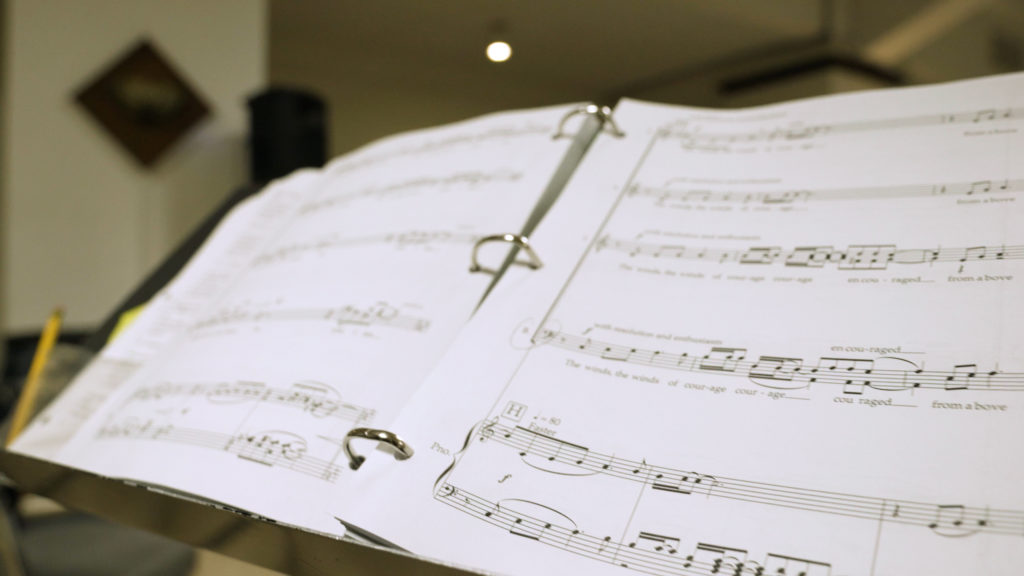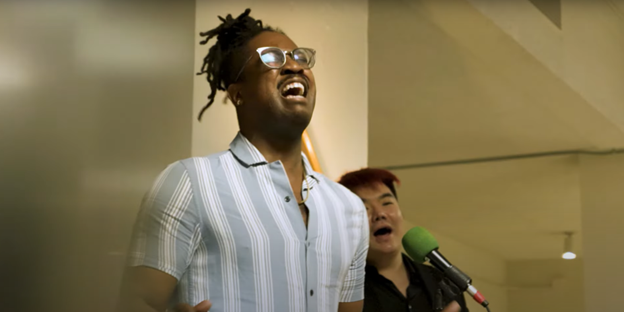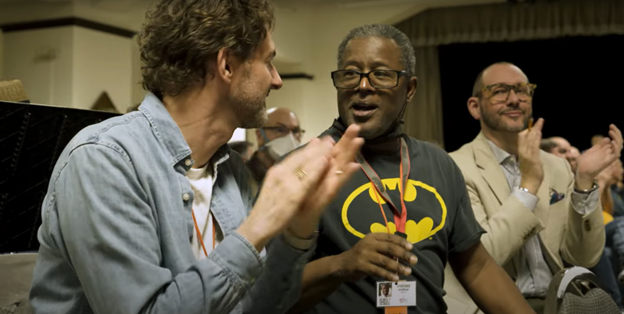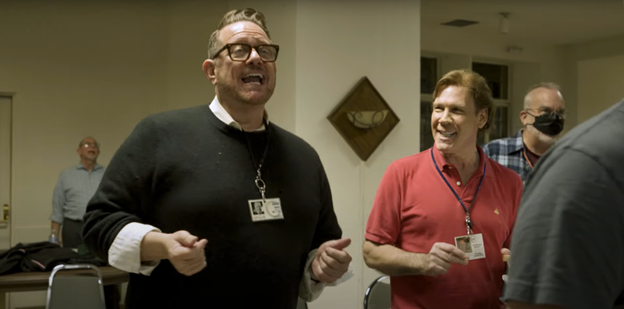Living in harmony has multiple meanings to the average member of the Gay Men’s Chorus of Los Angeles. Of course, about seven seconds into any given performance, you’ll quickly recognize the “average” member of this storied vocal troupe is anything but average. You need serious pipes to qualify for inclusion among this elite collective of musicians. Yet, off the stage, this is one of the most inclusive organizations you’re going to find. And they manage to keep that spirit artfully at the center of every performance. When these performers combat discrimination and hate, they do so with a song in their hearts. We were fortunate enough to hear all about it in our latest Community Spotlight.
Marching in the Direction of Equality
It’s a frightening time to be gay. Take for example the bill that just passed in Uganda, criminalizing identification as a homosexual. Closer to home, Florida’s government is pushing to expand an active law that prohibits discussion of sexual orientation, among other things, to include all grade levels. Less than a month into 2023, over 100 bills had been proposed to state legislatures with decidedly anti-LGBTQ+ aims. Shockingly, things were even worse for the LGBTQ+ community in 1970s America.
It was at this time that the LGBTQ+ community really began to organize and fight for their civil rights. Efforts reached a boiling point with a historic march on Washington on October 4, 1979. During that brave stand for human decency, several of the people gathered together in the name of gay rights looked into the hate-filled eyes of their oppressors. And they sang. It illuminated an often overlooked power; the melodic outcry of pure human spirit.
After that historic march, several of the empowered singers kept in touch, forming collectives in major cities like New York, San Francisco, and Los Angeles. Thus the Gay Men’s Chorus of Los Angeles got its start not just as a platform for outstanding musicianship but as a political movement.
The Gay Men’s Chorus of Los Angeles Finds Its Voice
Despite the Yellow Pages’ refusal to list them in the phone book, the Gay Men’s Chorus of Los Angeles hit the ground running. Fortunately, aspiring members didn’t need a phone book to find them. In those early days, they’d meet and practice at the West Hollywood Community Center. It wasn’t long until they’d clarified their mission: “To change hearts and minds through music.”
And that mission has guided them through points of both prominence and prestige. Through over 40 seasons, the Gay Men’s Chorus of Los Angeles has graced the Walt Disney Concert Hall, Royce Hall, the Alex Theatre, and Pasadena Civic Auditorium. Their valiant vocals have supported Hugh Jackman at the Hollywood Bowl and Demi Lovato at the Forum. They kicked off the Oscars in 2013 and the IFC Spirit Awards in 2020. They’ve even breached into film, lending their voices to the score of this year’s Commitment to Life; a harrowing look at the game changing influence of the AIDS Project Los Angeles (now APLA Health) on public perception of the AIDS epidemic.
Reaching Out to Change Hearts and Minds
But for most of the members of this intrepid troupe, the loftiest Hollywood galas and performance halls don’t hold a candle to their local community centers, parks, and schools. Because that’s where they really get to see the impact that comes with changing hearts and minds.
“One of the most satisfying parts of this program is our outreach program,” specifies Robert Lofaro, the organization’s Membership President. “We go into high schools, perform, and have open dialogue about bullying and coming out and just make ourselves visible and really break that wall down.”
“We’ve been doing this for the last 13 years now,” adds Lou Spisto, Executive Director and Producer. “We’re pushing toward 100,000 students that we’ve served so far.”
Sadly, as Florida’s government has been illustrating, parts of the country could actually frown on this kind of community outreach. But the organization’s Vice President, Thomas Franklin, explains why such outreach is more important than ever in the face of such an unfriendly climate. The Kansas native explains, “When I was in school, we didn’t have anyone telling us that it was possible to be gay and grow up to be a productive member of society.”
Spisto further elaborates, saying, “It’s an opportunity to push against bullying and to help children be themselves as people. We’re not necessarily speaking or advocating for the gay community or the LGBTQ community in terms of ‘this is what you should be.’ We’re just there to support young kids; to teach them about equality as we see it; to teach them that bullying is not a cool thing, and to teach them to accept themselves and each other through our songs.”
The Broadening Scope of the Gay Men’s Chorus
When your ultimate goal is to change hearts and minds, there’s no room to discriminate. So, the scope of the Gay Men’s Chorus of Los Angeles has only broadened with time. And as Spisto pointed out, their commitment to equality traverses the boundaries of the LGBTQ+ community.
“We serve as allies to any other marginalized group in society,” clarifies Franklin. The group has performed at multiple marches for women’s rights, have supported the Black Lives Matter organization, and even served as the catalyst for the Trans Chorus of Los Angeles. Several former members of the Gay Men’s Chorus splintered off to form that group.
“The community surrounding us is tangential to anyone who loves music or wants to speak up for the rights of all people or wants to come together to serve people,” Spisto elucidates. “We want more people to see us, so they get comfortable singing with us.” Therefore, they continue singing their songs and telling their stories in an ever-widening variety of forums.
Singing Their Stories
And those stories are as diverse as the members themselves. Lofaro spent his formative years singing in church choirs before taking some years off. When he decided to bring music back into his life, he auditioned for the Gay Men’s Chorus of Los Angeles.
He wasn’t offered a place after his first audition. But after studying voice, he returned for a successful second audition. He’s been singing with the troupe for over eight years now.
By contrast, the troupe actually came to Franklin in a sense. Having recently moved to the area from Kansas, he was still searching for an elusive sense of community. While doing karaoke with friends in West Hollywood one evening, he was approached by a few members of the chorus who urged him to audition.
While he doubted he’d be accepted, he was welcomed after his audition. That was back in 2004 and he’s been proudly singing with the group ever since.
A Familiar Melody
Despite coming from wildly diverse backgrounds, each member of the Gay Men’s Chorus seems touched by the familial and fraternal aspects of the organization. “They’ve helped me through some tough times,” admits Franklin. “And I did the same for them.”
Some of the most important bonds are formed outside of the stages and practice halls. Lofaro cites a variety of group bonding experiences that run the gamut from Rainbow Skate Night at the roller rink to Game Night at Senior Village. The group seems to particularly excel at outings that artfully blend socializing with service.
The Gay Men’s Chorus of Los Angeles Today
These days, the Gay Men’s Chorus of Los Angeles continues to fight for marginalized people while representing the right for their community to simply be. But while that fight may be the same, the community and the troupe itself has changed dramatically over the last few years.
“We want our chorus to become more and more a reflection of Los Angeles,” explains Spisto. “The future requires us to embrace continued change.” And with approximately 60% of the chorus composed of new recruits since the pandemic, there’s a lot of new energy to meet that change.
The chorus roster has never been more diverse. Its youngest members are in their early 20s while a founding member just turned 80. You don’t even need to be gay to join the troupe. All you need to audition is an interest in singing in one of their four voice types. Those include tenor one, tenor two, baritone, and bass.
Hate can be loud. Even when it’s held by only a few people, their cacophonous din can reach a fever pitch that’s hard to ignore. Fortunately, the Gay Men’s Chorus of Los Angeles has found that a lovely melody stays in your mind longer than a scream. So, they continue singing their song to whoever will listen, hoping that someday, the rest of the world will join in.
With a brand that says as much as JohnHart’s, Senior Copywriter Seth Styles never finds himself at a loss for words. Responsible for maintaining the voice of the company, he spends each day drafting marketing materials, blogs, bios, and agent resources that speak from the company’s collective mind and Hart… errr, heart.
Having spent over a decade in creative roles across a variety of industries, Seth brings with him vast experience in SEO practices, digital marketing, and all manner of professional writing with particular strength in blogging, content creation, and brand building. Gratitude, passion, and sincerity remain core tenets of his unwavering work ethic. The landscape of the industry changes daily, paralleling JohnHart’s efforts to {re}define real estate, but Seth works to maintain the company’s consistent message while offering both agents and clients a new echelon of service.
When not preserving the JohnHart essence in stirring copy, Seth puts his efforts into writing and illustrating an ongoing series entitled The Death of Romance. In addition, he adores spending quality time with his girlfriend and Romeo (his long-haired chihuahua mix), watching ‘70s and ‘80s horror movies, and reading (with a particular penchant for Victorian horror novels and authors Yukio Mishima and Bret Easton Ellis). He also occasionally records music as the vocalist and songwriter for his glam rock band, Peppermint Pumpkin.


